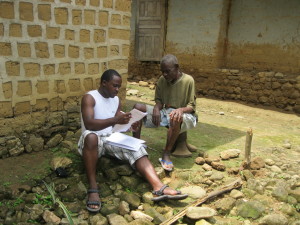
Mbunya Francis Nkemnyi January 15, 2021
Early Menstruation and its odds
Over time, there has been a progressive decline in the age at which puberty and menarche (early menstruation) occur in young girls all over the world (Scientific American, 2015). Puberty is a phase during which children reach sexual maturity while according to Merriam Webster dictionary; menarche is beginning of menstrual function, i.e the first menstrual flow of a woman. Usually menarche comes 1-3 years after puberty. In the 18s, girls reached puberty and menarche between 15-20 years. This phenomenon has dropped drastically. Research now shows girls entering puberty and menarche at an earlier age of 9-14 birthdays, (Mayo clinic, 2016).
According to an America scientific research in 2015, some of the reasons associated to our generation experiencing early menarche include obesity which is said to have doubled in children over the past 30 years. Fatter girls have higher levels of the hormone leptin, higher oestrogen levels, higher insulin, which can lead to early puberty, more fat tissue, higher stress and early menarche. Also, family stress and environmental chemicals also play a great role in early menarche. Children who experience parental divorce at an early age are likely to experience early menarche than girls with both parents as a result of stress.
Girls who encounter early menarche face certain challenges which affect their youth. Girls who exhibit obvious signs of physical maturation and have early menarche may find it difficult to maintain friendships with same-sex peers who have not developed at a similar rate ( Jane Mendle, Eric, Robert Emery, 2010) and may have higher levels of depression. Secondly, some studies have found an association between early menarche and behavior problems, particularly in kids with developmental delays (Roy Benaroch, MD 2015). This is so as most parents in Africa do not educate their children before time or within the time. Most at times it leads to early pregnancy with its entire disadvantage (Julie Beck, 2016). It sometimes results to stress as they feel awkward about looking different among their peers. Lastly these young girls face difficulties using and deposing their sanitary tissue.
The women and development department of RCESD, is carrying out research on the causes and effects of early menarche among young girls in the South West region and to see how it can contribute to these girls better managing these changes in their bodies.
Fombu Christel– Women & Development


